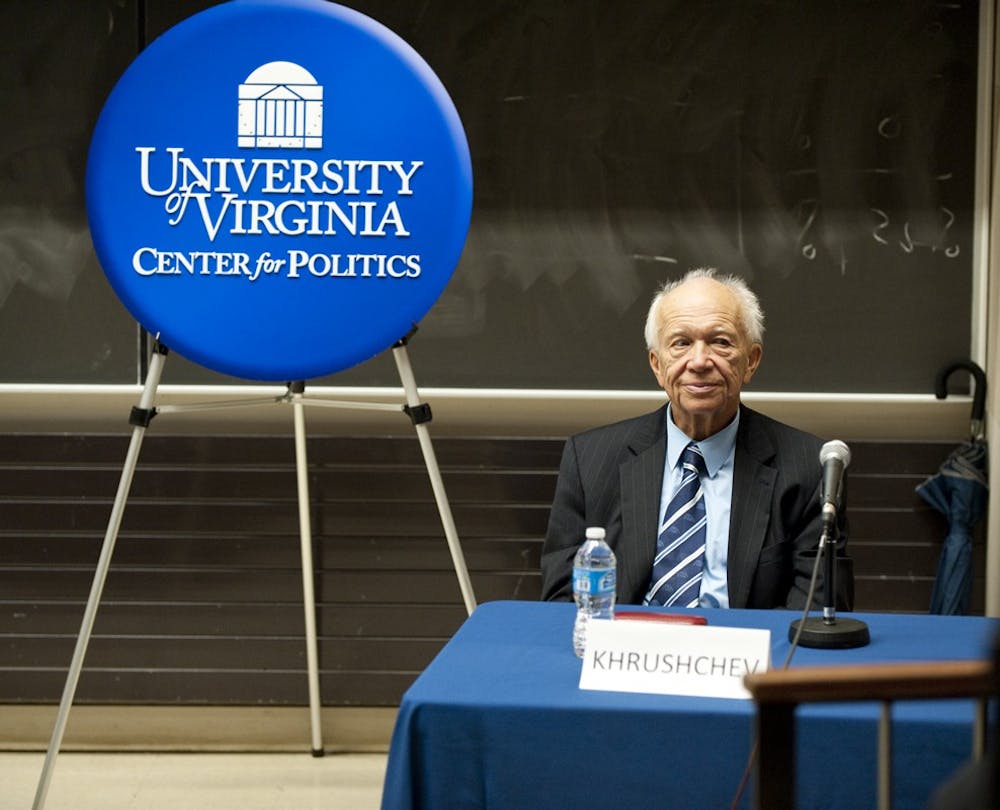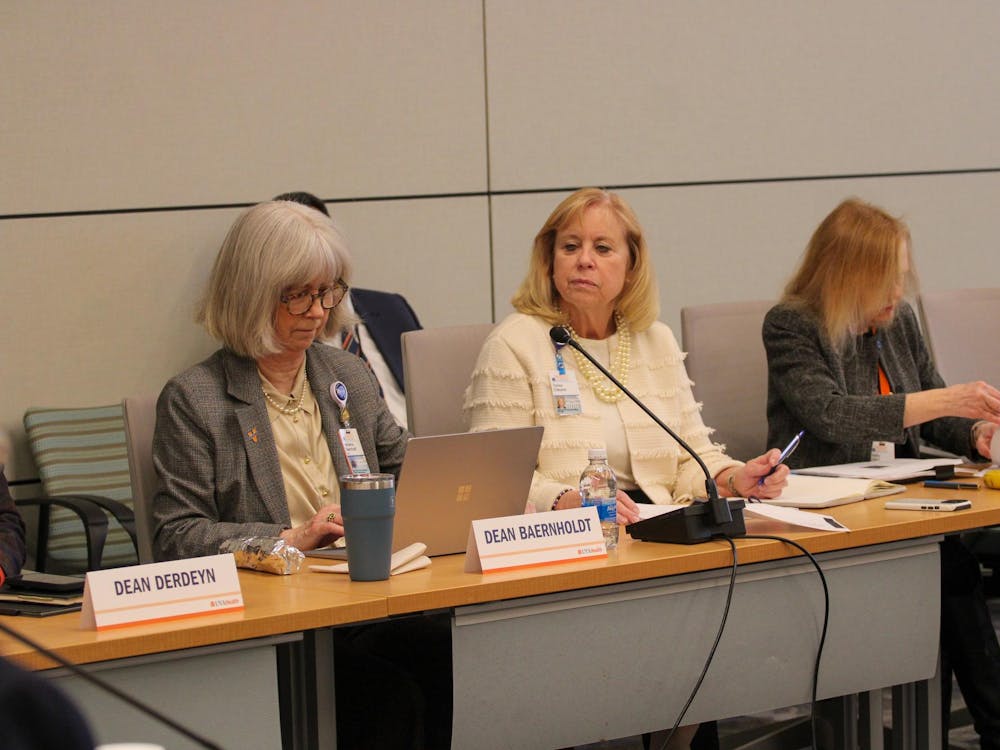Dr. Sergei Khrushchev, the son of former Soviet Premier Nikita Khrushchev and a senior fellow at Brown University, spoke on a panel Thursday evening about the Cuban Missile Crisis. This year marks the 50th anniversary of the crisis, which pitted Khrushchev’s father against President John F. Kennedy.
The panel was presented as part of the Center for Politics’ Anniversary Series, which commemorates landmark political events in U.S. history in the 1960s through public lectures, programs, television documentaries and teaching resources.
Khrushchev was joined by David Robarge, chief historian for the CIA, University Politics Prof. Allen Lynch, Timothy McKeown, a politics professor at the University of North Carolina, and Richard Reeves, author of “President Kennedy: Profile of Power.”
Students, professors and community members filled Wilson Hall to hear the panel examine the events that led to the international incident, its aftermath and how it affected the remainder of the Cold War.
Khrushchev has attended events at the University since the early 1960s and has an established relationship with some faculty members here. “I think the face that his father is Nikita Khrushchev … helps us get the other side of the story and get a better understanding of what happened and what leaders were thinking at the time,” Center for Politics spokesperson Geoff Skelley said.
One of the main points of discussion was a speech Kennedy gave at American University in 1963, where he announced his decision to suspend all atmospheric testing of nuclear weapons as long as other nations would do the same. It was a figurative olive branch to the Soviet Union, and one of the most critical speeches of the Cold War, panelists said.
“My father told me the president would speak for the nation in terms of going for war, we discovered quickly it would [depend] on the president’s speech,” Khrushchev said. “My father said everything would go under that speech, the generals will make the decisions and we may slide into nuclear war, and we needed to prepare Cuba for any invasion.”
Because of an eight-hour time difference, the Soviets watched the speech at 3 a.m. “It was a relief because … the speech [showed] that the White House had reasonable leaders, not ones who would just shoot,” Khrushchev said.
Lynch closed the panel by referencing the same speech, explaining how the treaty reflected the ability of major Cold War actors to come together. “[Kennedy] eloquently invoked in his speech the suffering of Soviet people in World War II and said we need to make the world a safe place for diversity,” Lynch said. “Many Russians carried this speech on their persons for many years as a sign of what could have been.”
Khrushchev encouraged the audience to think about the applications this crisis could have in today’s global political climate. The speech, he said, was “a direct message [saying] ‘maybe we can resolve this’… it’s a great example to us because we are not negotiating today, not with Iran, we only negotiate with our friends.”
Without following a similar policy of international negotiation history could just repeat itself but this time in the Middle East, Krushchev said.







